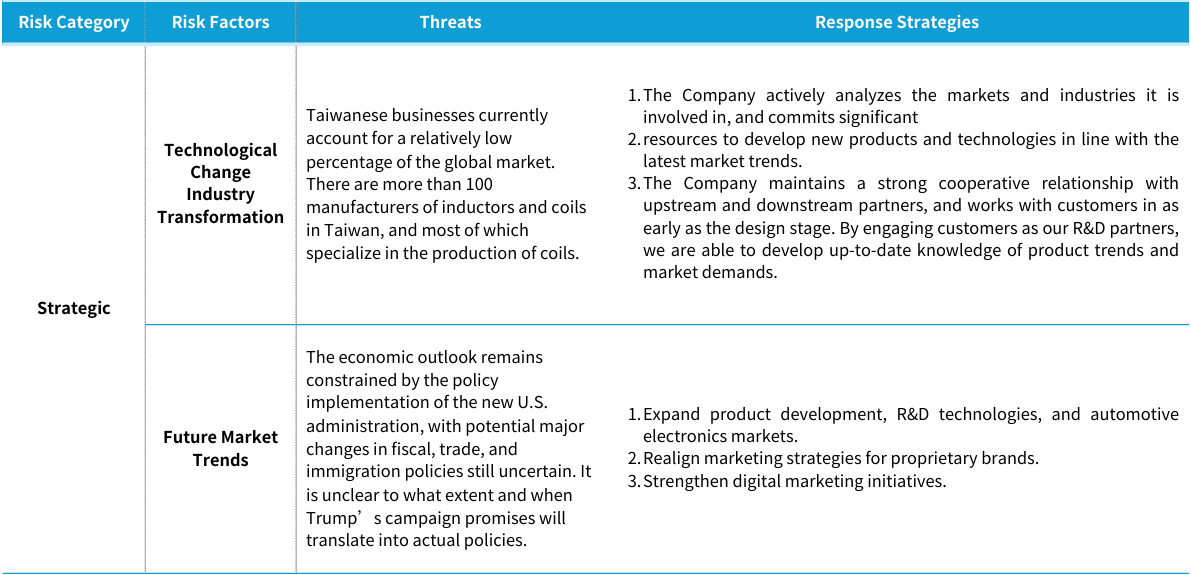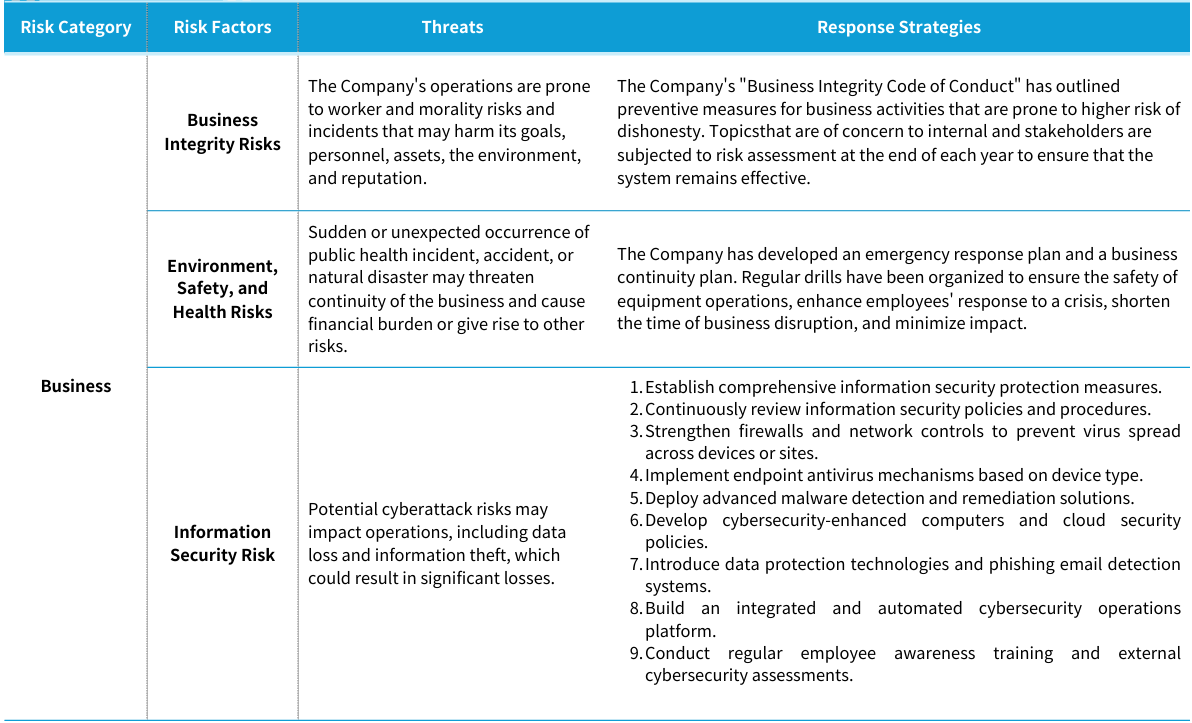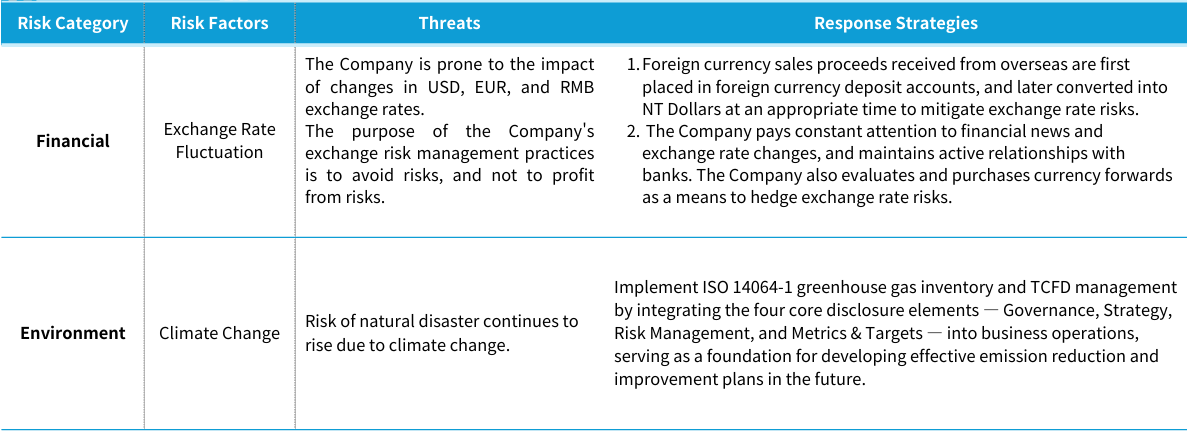ABC-AETC adheres to the business philosophy of “To create and develop a premium inductive components and mechanical parts industry through practical operation, creative innovation and continuous development." and manages its businesses based on principles of materiality. The Company regularly identifies and monitors risks that are relevant to its operations, which in turn allows timely response to crises and the possibility of minimizing threats or even turning them into opportunities. A total of 7 risks were identified in 2024; risk factors, threats, and response strategies are explained below:


